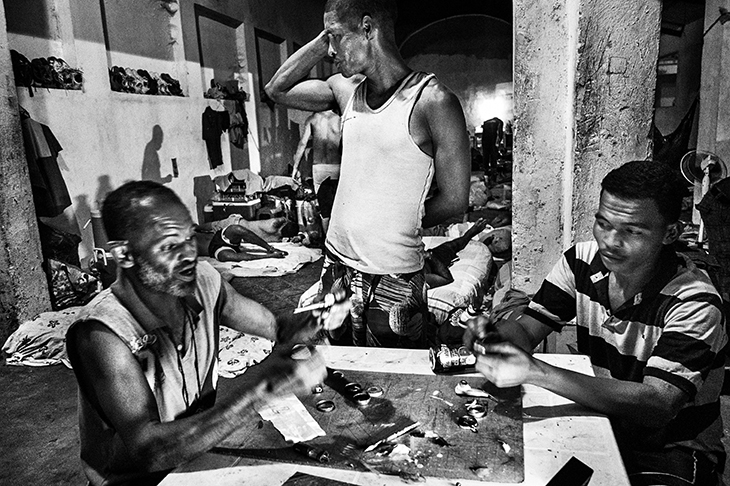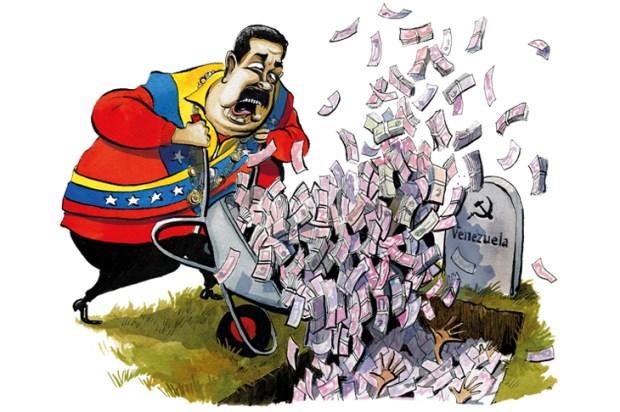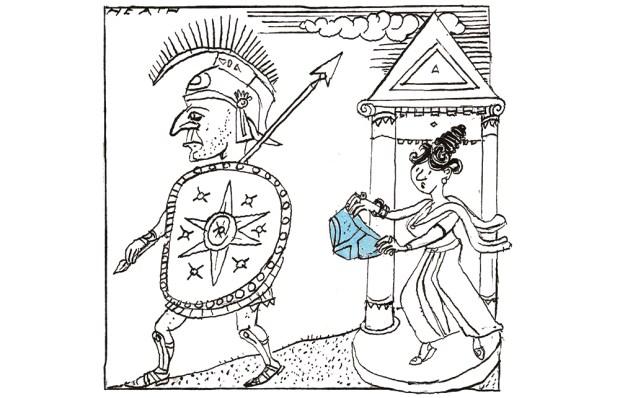‘I murder people!’ says Elanger matter-of-factly in response to my question about what he does for a living. From the comfort of my home in the UK, I have managed to get in touch, through contacts of contacts on Facebook, with someone serving 19 years in prison for double murder in Venezuela. The country has some of the most notorious jails in the world. Inside one of them, Elanger has got hold of a Samsung Galaxy S5 Neo.
Between 2010 and 2014, I lived in a student city called Mérida in the Venezuelan Andes. It is a beautiful old colonial town and was a fun place, full of bars and discos. In the end, I left because of an extortion attempt against me, and I have been curious about Venezuelan crime and prisons ever since, especially after meeting a German man who had spent three years inside one for trafficking cocaine. He told me dark tales about rats everywhere and other inmates lunging at him with kitchen knives. Through Facebook, I have the chance to see into this alien world. It’s a world that provides many insights into the almighty mess that Venezuela has become.
I tell Elanger that I am a British journalist and ask him what the conditions are like inside. ‘Why don’t you keep your nose out of my affairs if you know what is good for you,’ he snarls in Spanish. His sinister presence is so strong I can almost feel it 4,600 miles away. I give up with Elanger but start chatting with another jailbird, called Fernando, 38, who is much more forthcoming.
He has spent nine years in a jail in Valencia, the country’s third largest city, for his involvement in a kidnapping. ‘You know it’s safer inside than outside?’ he asks. ‘City streets are just so dangerous.’
He has a point. According to an Insight Crime survey, there were 26,600 violent deaths in Venezuela last year — an overall rate of 89 per 100,000 people (compared with 1.6 in London). Only war zones such as Syria or Somalia are more dangerous. But the prisons are not exactly safe houses. Between 1999 (when Hugo Chávez, Jeremy Corbyn’s socialist idol, became president) and 2014, 6,470 murders were registered by the country’s prison system. That is quite a lot when you consider it has 49,600 inmates in total (46,900 men and 2,700 women), packed into 35 jails constructed for only 19,000 people. Another 33,000 are held in police cells meant for 5,000.
Around 63 per cent of those incarcerated have not yet been sentenced and, to my astonishment, Fernando is one of them. ‘Yes, my lawyer is a nice guy,’ he says. ‘Very friendly and he tries his hardest but the courts are useless. They are so inefficient and bureaucratic, like the state generally.’
I almost feel sorry for him, but have to remind myself that he probably kidnapped someone, or worse. Nonetheless, there must be many cases of terrible injustice.
Fernando lets me see inside the prison on his smartphone. My first impression is the incessant screaming and shouting. How anyone could endure that for nine years — or longer — and not be driven mad is a miracle. Then I look at the prison walls and they are covered in black and red graffiti. Fernando is a big, dark man and sleeps in a single bed in a dormitory hall with around 30 other inmates. He speaks the unmistakable coarse Spanish of a Caracas slum.
It is almost impossible to obtain toilet roll in Venezuela. I remember going to a public hospital there in 2013 and there was none available even back then. Is there any in prison? ‘Of course not,’ he says. How do you manage, then? ‘I shower once a day.’
Fernando tells me that he is friendly with the pran, the gang-master who essentially runs the jail and manages a drugs and extortion racket from the inside. He is a lucero, one of the gangmaster’s lieutenants with special privileges.
In 2011, Chávez appointed a socialist firebrand called Iris Varela as prisons minister. Overwhelmed by the violence and regular riots, she befriended the prans and gave them power inside some of the worst jails. It was a way of restoring a degree of order. Last year, the US government sanctioned Varela and froze her financial assets for undermining Venezuelan democracy. Her response? She posted a photo of herself giving the one-finger salute on Twitter and wrote: ‘Go to hell, you piece of shit Yankees.’
At least Fernando can get food inside prison: ‘Last night I had a chicken breast and rice. That is a lot better than many people eat outside.’ On that score, he is right. Venezuela is suffering a huge malnutrition crisis, which the government will not admit. During 2016, 74 per cent of the population lost an average of 8.7 kilos (19lb) of weight and around a third of the country’s 31 million inhabitants eat two or fewer meals a day. Around 1.5 million Venezuelans scavenge in refuse every day. The crazy economic policies of Nicolás Maduro, the former bus driver who took over the presidency in April 2013 upon Chávez’s death, have generated the world’s highest rate of inflation at 2,700 per cent a year and immiserated the population. The minimum wage, including food stamps, amounts to 456,000 bolivars a month, or £2 at the black market exchange rate.
Has this hyperinflation affected inmates? ‘Yes, the price of hookers has shot up,’ says Fernando. ‘When I first entered here you could get one for 50 bolivars; they now cost 170,000.’ (About 70p.) I get chatting to another con. Rino, aged 26 and sentenced for 19 years for double murder, seems friendly enough. He has a girlfriend and she visits him in jail every week. He bribes the guards and is able to sleep with her once every fortnight. Are there female inmates? ‘No, then it would be paradise,’ he says, making me chuckle. Rino seems quite a happy jailbird and in fact is a bit of a philosopher. ‘I sleep well at night and feel safe in here. What more do you want?’ he says.
I ask him what he thinks of Maduro. ‘He is an animal. Who would let their people starve in the way he does? Venezuelans have become enslaved by the regime.’ I suppose it takes a murderer to recognise someone who might not have a conscience. ‘Of course, he doesn’t. He couldn’t give a toss.’ What would you like to do to Maduro? ‘He deserves to have plomo put through his head.’ Plomo is the Spanish word for lead.
I start to chat to Fernando again and he is very curious about Britain. ‘You have a king, right?’ No, we have a queen. ‘How old is she?’ 91. ‘Does she have any single daughters?’ One daughter, but she is taken. ‘Shame!’
Fernando has not been sentenced either, but he is nevertheless optimistic that he will be released this year. The first thing he will do is go abroad.
‘There’s no way I will stay in Venezuela, the mess that it is in.’ Where would you like to go? ‘How about England?’
Got something to add? Join the discussion and comment below.
Get 10 issues for just $10
Subscribe to The Spectator Australia today for the next 10 magazine issues, plus full online access, for just $10.
You might disagree with half of it, but you’ll enjoy reading all of it. Try your first month for free, then just $2 a week for the remainder of your first year.














Comments
Don't miss out
Join the conversation with other Spectator Australia readers. Subscribe to leave a comment.
SUBSCRIBEAlready a subscriber? Log in